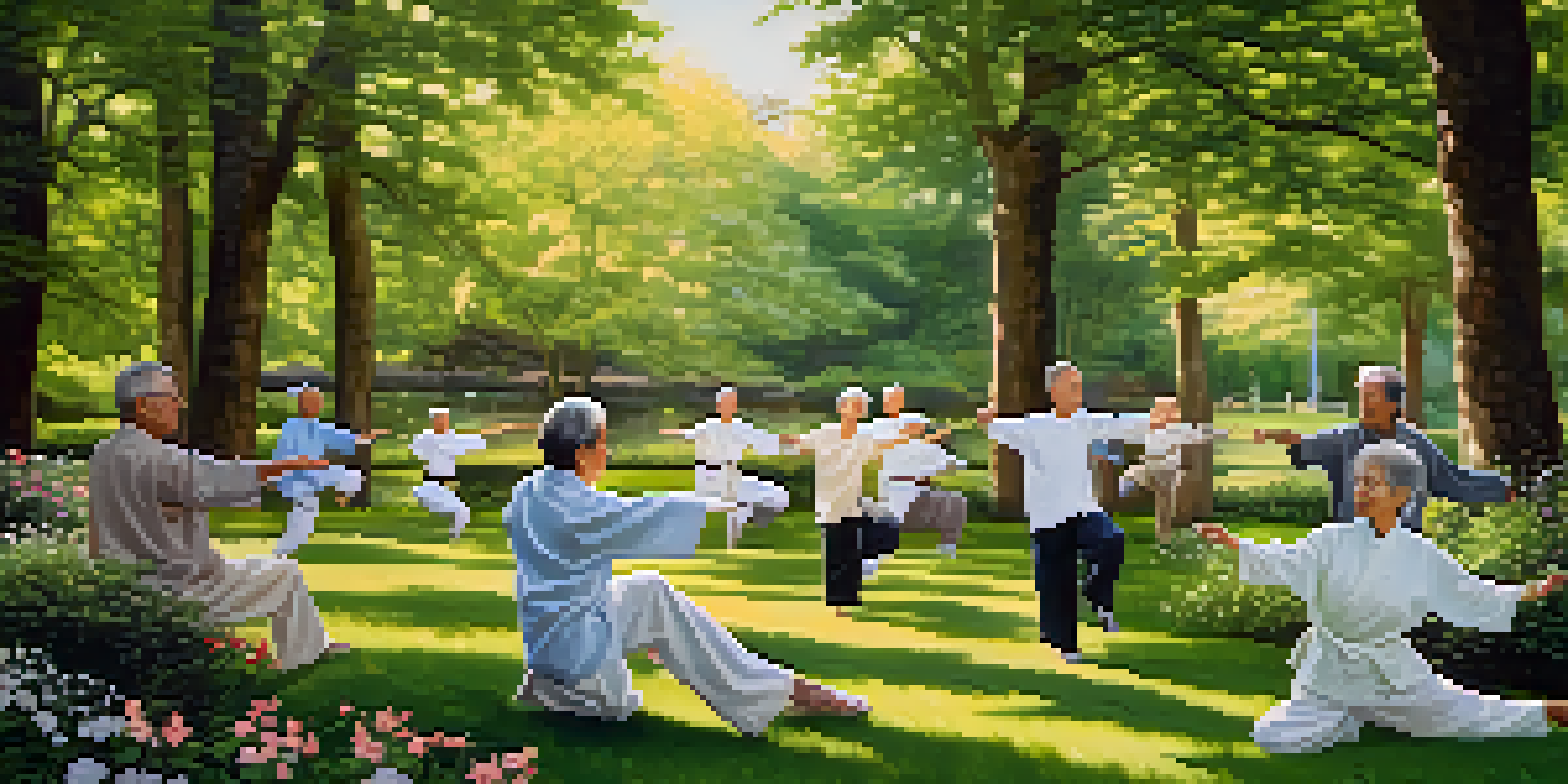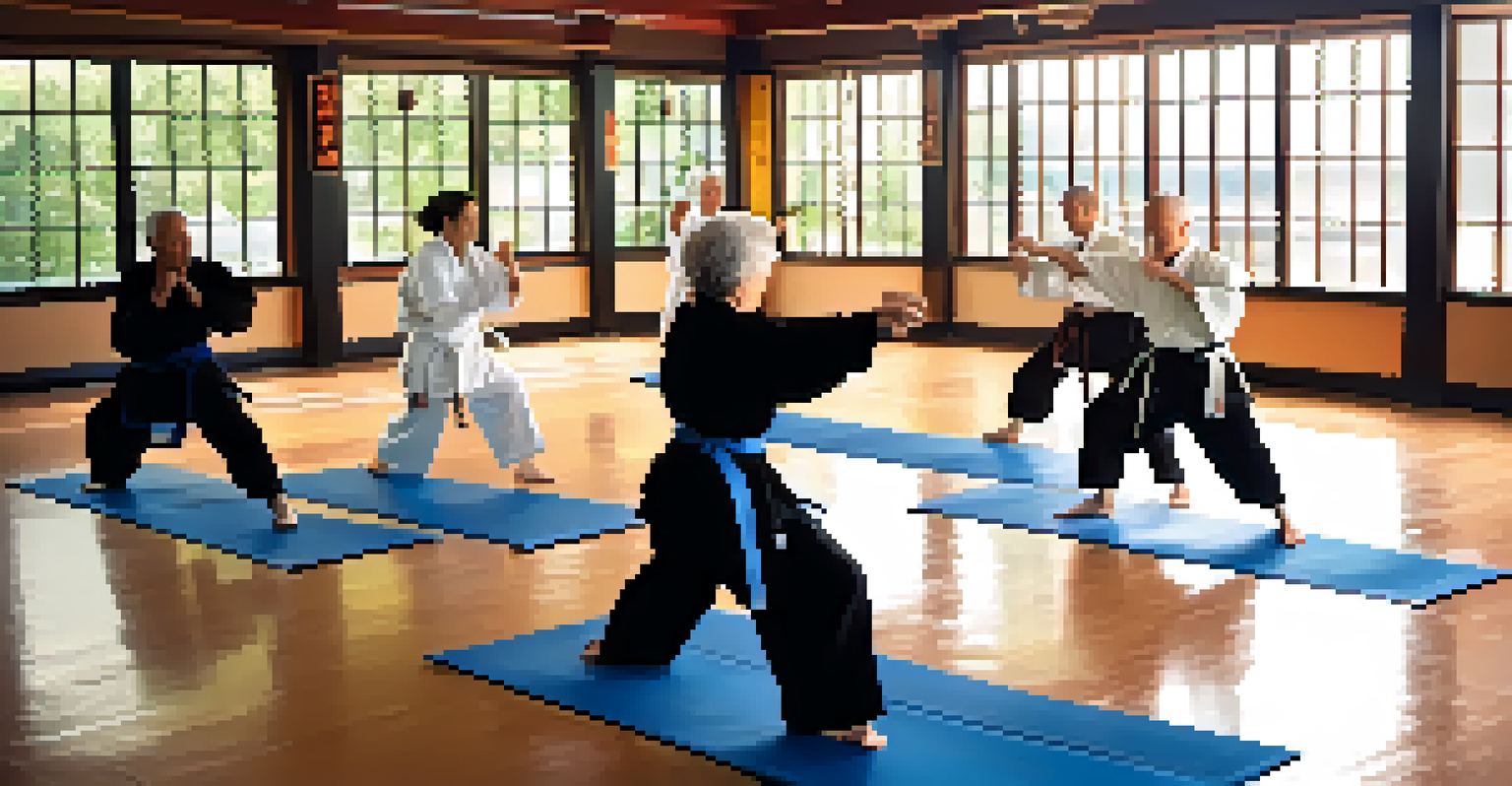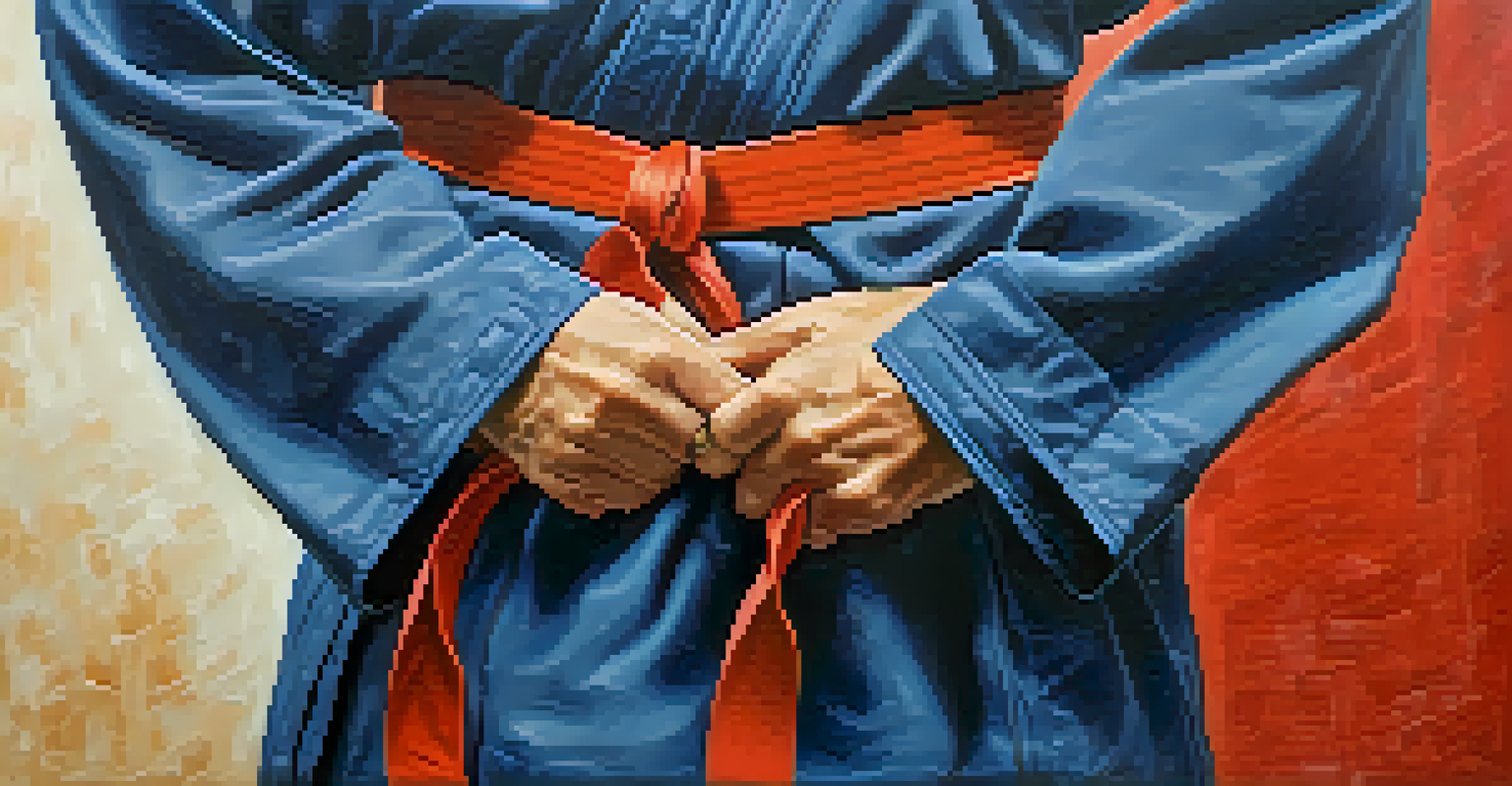Martial Arts: A Pathway to Enhanced Mobility for Seniors

Understanding Mobility and Its Importance for Seniors
Mobility is crucial for seniors as it allows them to perform daily activities independently. Maintaining mobility not only enhances physical health but also boosts mental well-being. The ability to move freely contributes to a higher quality of life, helping seniors stay active and engaged.
Movement is a medicine for creating change in a person's physical, emotional, and mental states.
As we age, our muscles, joints, and balance can weaken, leading to a decline in mobility. This decline can result in a cycle of inactivity, making it even harder to regain strength and flexibility. Therefore, finding effective ways to enhance mobility becomes essential for seniors to maintain their independence.
Martial arts offers a unique approach to improving mobility through structured movements and techniques. These practices focus on flexibility, strength, and coordination, providing a holistic method for seniors to stay active and healthy.
Benefits of Martial Arts for Seniors' Mobility
Martial arts training can significantly improve flexibility, which is vital for seniors. Enhanced flexibility allows for a broader range of motion, making everyday tasks like bending down or reaching up much easier. This improvement can also help prevent injuries that often occur due to stiff muscles or joints.

Strength is another critical component that martial arts training can boost. Stronger muscles support joints better, reducing the risk of falls and fractures. As seniors become more confident in their physical abilities, they often find themselves taking on new challenges and activities.
Mobility Boosts Seniors' Independence
Maintaining mobility through practices like martial arts enhances seniors' physical health and overall quality of life.
Moreover, martial arts emphasize balance and coordination, skills that tend to diminish with age. By practicing techniques that require precise movements, seniors can enhance their stability and agility, making it easier to navigate their environment safely.
Social Interaction Through Martial Arts Classes
Joining a martial arts class can create a sense of community for seniors. The social aspect of training with others can combat feelings of loneliness and isolation, which are common in older adults. Building friendships through shared experiences fosters a supportive environment.
The more you know about yourself, the more you can appreciate the value of your own uniqueness.
In a class setting, seniors can encourage one another and celebrate progress together. This camaraderie can be incredibly motivating, pushing individuals to stay committed to their training. The shared journey of learning martial arts can promote lasting relationships.
Additionally, many martial arts schools offer classes specifically tailored to seniors, ensuring that the pace and intensity are appropriate. These classes provide a safe space for seniors to learn and grow, both physically and socially.
Finding the Right Martial Arts Style for Seniors
Not all martial arts are created equal, especially when it comes to accommodating seniors. Styles like Tai Chi, Aikido, or Judo can be particularly beneficial due to their focus on fluid motion and gentle movements. Each style offers unique advantages, so it's essential to explore options.
Tai Chi, often described as 'meditation in motion,' emphasizes slow, deliberate movements that improve balance and flexibility. It's an excellent choice for seniors looking for a low-impact way to enhance their physical abilities. Many find it calming and therapeutic.
Martial Arts Fosters Community
Participating in martial arts classes provides seniors with social interaction, helping to combat loneliness and build friendships.
On the other hand, styles like Aikido focus on fluidity and redirection of energy, allowing seniors to practice techniques without high impact. It's crucial for seniors to choose a style that resonates with them, making the experience enjoyable and sustainable.
Setting Realistic Goals for Martial Arts Practice
When starting martial arts, it's essential for seniors to set realistic goals. Instead of aiming for black belt status right away, focusing on small milestones can make the journey more manageable. Goals like improving balance or increasing flexibility can provide a sense of accomplishment.
Achieving these smaller goals builds confidence and encourages continued participation. As seniors progress, they often find themselves motivated to tackle more challenging aspects of their training. Celebrating these achievements keeps the experience positive and rewarding.
Seniors should also consider consulting with instructors about their personal capabilities and limitations. A good instructor will help tailor the training to meet individual needs, ensuring a safe and effective practice.
Safety Considerations for Seniors in Martial Arts
While martial arts can be highly beneficial, safety should always be a priority for seniors. It's important to choose a class that understands the unique needs of older adults and provides a safe training environment. Proper warm-up and cool-down routines are essential to prevent injuries.
Seniors should also listen to their bodies and communicate any discomfort or limitations to their instructors. A good martial arts instructor will be attentive and adjust activities accordingly, ensuring that participants feel secure while training.
Safety is Key in Martial Arts
Choosing the right class and prioritizing safety measures ensures that seniors can safely enjoy the benefits of martial arts.
Additionally, using appropriate protective gear during practice can help reduce the risk of injury. Whether it's wearing supportive footwear or using mats for falls, taking precautions can make martial arts a safe and enjoyable activity for seniors.
Incorporating Martial Arts into a Holistic Wellness Routine
Integrating martial arts into a senior's overall wellness routine can yield significant benefits. When combined with other forms of exercise, such as walking or swimming, martial arts can enhance overall physical fitness. This holistic approach supports not only mobility but also cardiovascular health and mental clarity.
Nutrition plays a vital role in wellness, too. Maintaining a balanced diet alongside martial arts practice can help seniors fuel their bodies for better performance. Proper nutrition ensures that muscles receive the nutrients needed for recovery and strength.

Finally, incorporating mindfulness practices like meditation or deep breathing can complement martial arts training. These techniques can help seniors manage stress and improve focus, making their martial arts journey even more rewarding.